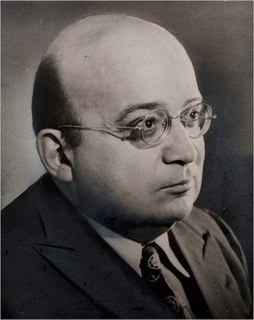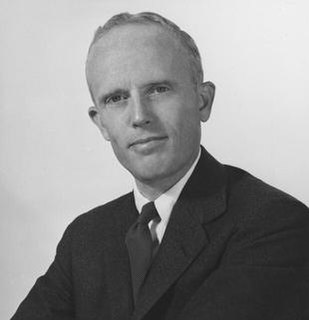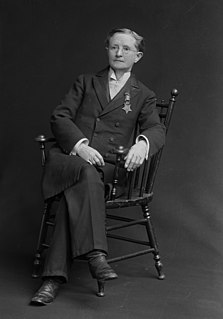A Quote by Charles Caleb Colton
We submit to the society of those that can inform us, but we seek the society of those whom we can inform. And men of genius ought not to be chagrined if they see themselves neglected. For when we communicate knowledge, we are raised in our own estimation; but when we receive it, we are lowered.
Related Quotes
God has formed us moral agents... that we may promote the happiness of those with whom He has placed us in society, by acting honestly towards all, benevolently to those who fall within our way, respecting sacredly their rights, bodily and mental, and cherishing especially their freedom of conscience, as we value our own.
Money is what fueled the industrial society. But in the informational society, the fuel, the power, is knowledge. One has now come to see a new class structure divided by those who have information and those who must function out of ignorance. This new class has its power not from money, not from land, but from knowledge.
All of us need an identity which unites us with our neighbours, our countrymen, those people who are subject to the same rules and the same laws as us, those people with whom we might one day have to fight side by side to protect our inheritance, those people with whom we will suffer when attacked, those people whose destinies are in some way tied up with our own.
If all females were not only well educated themselves but were prepared to communicate in an easy manner their stores of knowledge to others; if they not only knew how to regulate their own minds, tempers, and habits but how to effect improvements in those around them, the face of society would be speedily changed.
There are always rebels and radicals, I suppose,' McCleethy allows. 'Those who live on the fringes of society. But what do they contribute to the society itself? They reap its rewards without experiencing its costs. No. I submit that loyal, hardworking citizens who push aside their own selfish desires for the good of the whole are the backbone of the world. What if we all decided to run off and live freely without thought or care for society's rules? Our civilization would crumble. There is a joy in duty and a security in knowing one's place...It is the only way.
Our lives are a battlefield on which is fought a continuous war between the forces that are pledged to confirm our humanity and those determined to dismantle it; those who strive to build a protective wall around it, and those who wish to pull it down; those who seek to mould it and those committed to breaking it up; those who aim to open our eyes, to make us see the light and look to tomorrow [...] and those who wish to lull us into closing our eyes
I fired the ball for the purpose of giving those dudes to understand upon what ground I stood, believing that those of this class who believe that there are no women capable of taking care of themselves when young, would inform their friends that they might be in danger of their lives if they approached me.
But, historians, and even common sense, may inform us, that, however specious these ideas of perfect equality may seem, they are really, at bottom, impracticable; and were they not so, would be extremely pernicious to human society. Render possessions ever so equal, men's different degrees of art, care, and industry will immediately break that equality. Or if you check these virtues, you reduce society to the most extreme indigence; and instead of preventing want and beggary in a few, render it unavoidable to the whole community.





































